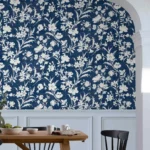Quick Bio
| Category | Information |
|---|---|
| Full Name | Jane Mary Ashton |
| Date of Birth | Late 1970s (exact year not publicly known) |
| Age | Mid-40s (as of now) |
| Nationality | British |
| Profession | Writer, Activist, Cultural Advocate |
| Marital Status | Married |
| Husband | Andrew Woodall (Actor, Drama school graduate) |
| Children | 3 – Constance Rose, Gabriel Sanderson, Leo Vincent (Leo Woodall) |
| Famous For | Literary works, cultural advocacy, and as the mother of actor Leo Woodall |
| Physical Appearance | Calm presence, dignified personality (no public details shared) |
| Net Worth | Not publicly disclosed |
Early Life and Family Background
Jane’s life began in a family where education and public service were highly valued. Growing up in a home surrounded by books, thoughtful conversations, and a strong sense of social duty, she developed an early love for reading and writing. Her childhood was filled with influences that would later become part of her life’s work: a respect for knowledge, an appreciation for different cultures, and a moral sense that urged her to use her abilities for more than just personal gain.
She was described as a curious and thoughtful child, one who often asked questions and wanted to understand the world beyond what was immediately visible. These qualities, nurtured in a supportive family, made it clear that her path would be one of learning, teaching, and leading through ideas.
People Read Also: Who Is Finn William Leeves Coben? Son of Actress Jane Leeves and Producer Marshall Coben
Age and Looks of Jane Mary Ashton
Jane Mary Ashton was born in the late 1970s, which makes her in her mid-forties today, though she has not shared her exact date of birth publicly. She values her privacy and does not often speak about personal details, including her physical appearance. People who know her describe her as graceful and calm, with a dignified presence that leaves a lasting impression. Rather than being known for outward looks, she is admired for her thoughtful nature, humility, and the warmth she brings to her family and the people she works with.
Education and Academic Foundations
Professional and Literary Career
Advocacy and Cultural Leadership
Leadership Style and Vision
Her leadership style has often been described as one of quiet strength. Unlike some leaders who seek recognition or power, Jane’s way of leading was more about lifting others up and letting her work speak for itself. People who worked with her often describe her as humble but also deeply inspiring. She did not simply direct others; she encouraged them, challenged them to think, and gave them the confidence to share their own ideas.
One of her strongest beliefs was in what she called “small histories.” She felt that the everyday stories of ordinary people held as much value as the grand narratives of famous figures. By focusing on these smaller, personal stories, she helped people see that dignity and meaning are found in the daily lives of communities, not just in official history books.
Mentorship and Teaching
Mentorship is another important part of Jane’s legacy. She took the time to guide young writers, researchers, and educators, offering not only practical advice but also ethical support. Many of the people she mentored have gone on to lead important projects themselves, often inspired by her values of inclusion, creativity, and responsibility. Through lectures, workshops, and public talks, she has continued to influence new generations, encouraging them to think critically, read widely, and care about the world around them. For Jane, education was never just about academic knowledge—it was also about emotional intelligence, empathy, and cultural literacy.
Awards and Recognition
Because of her many contributions, Jane Mary Ashton has received recognition both in her home country and internationally. She has been honored with awards such as the British Council Award for Cultural Diplomacy and has received medals from literary organizations for her lifetime contributions. Several universities have also awarded her honorary doctorates in recognition of her work in education and cultural advocacy. Yet, true to her nature, Jane has always accepted these awards with modesty, preferring to see them as symbols of the causes she supports rather than as personal achievements.















